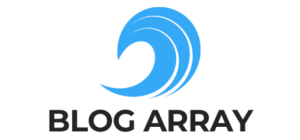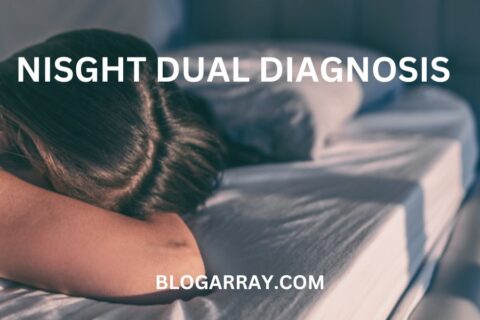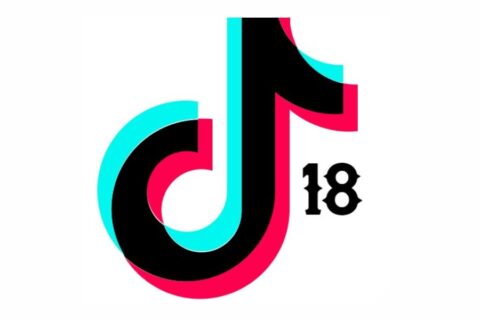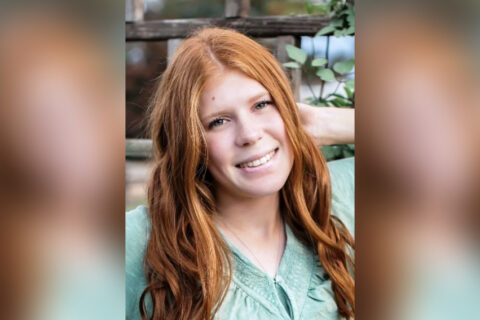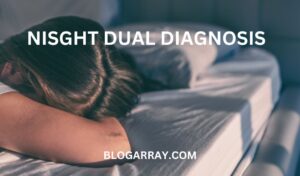Introduction to Nisght Dual Diagnosis
Imagine waking up every day feeling trapped, battling not just one but two invisible monsters—mental health issues and addiction. For many people, this is their daily reality. Thankfully, Nisght Dual Diagnosis offers a path toward hope, understanding, and recovery. Nisght’s approach provides comprehensive treatment that doesn’t just focus on the addiction or mental health condition alone, but addresses both together. This means a person struggling with depression and substance abuse, for instance, won’t have to face these battles separately. Instead, they are given the tools and guidance to heal from both, transforming their lives for the better.
When someone hears about dual diagnosis, they often wonder why it matters. Why is it so important to address mental health and addiction at the same time? The answer lies in understanding that both conditions fuel each other. Treating just one can lead to a relapse of the other. This is why Nisght’s approach is so effective—by treating both together, they offer a comprehensive solution that gets to the root of the problem.
What is Dual Diagnosis?
Dual diagnosis is a term used when someone experiences both a mental health disorder and a substance abuse problem at the same time. These two issues are deeply interconnected. It’s not uncommon for someone who struggles with anxiety or depression to turn to alcohol or drugs as a way of coping. Likewise, people who deal with addiction often find that their substance use worsens existing mental health conditions or even triggers new ones. Dual diagnosis recognizes this connection and works to treat both conditions simultaneously.
Common examples of dual diagnosis include combinations like:
- Depression and alcoholism
- Anxiety and cocaine addiction
- PTSD and opioid dependence
Each person’s dual diagnosis will look different. Some may have struggled with mental health issues first and then turned to drugs or alcohol. Others may have started with substance abuse and found that it triggered or worsened a mental illness. In both cases, the relationship between the two is complex, but the need for treatment that tackles both is clear.
Understanding Nisght Dual Diagnosis Treatment
At Nisght, the goal is to treat both the mental health disorder and the substance use disorder equally. They know that addressing just one without the other isn’t enough. Imagine trying to clean up a leak by mopping the floor but ignoring the broken pipe. Eventually, the floor will get wet again because the underlying problem wasn’t fixed. Similarly, if a treatment center only focuses on addiction but ignores the mental health issues, or vice versa, the chances of relapse are high. Nisght understands this and works to address both through a combination of therapies, medical treatments, and holistic care.
Their treatment is not a one-size-fits-all solution. Instead, they offer individualized plans that take into account the unique needs of each patient. This personalized approach ensures that each person gets the specific care they need to recover fully.
Mental Health Disorders in Dual Diagnosis
Mental health disorders come in many forms, and when paired with addiction, the challenges become even more complex. Some of the most common mental health conditions seen in dual diagnosis cases include:
- Depression: People with depression often feel a deep sadness, lack of energy, and hopelessness. Many turn to alcohol or drugs to numb these feelings, leading to addiction.
- Anxiety: Anxiety disorders can cause excessive worry, fear, and panic attacks. Substances like alcohol or benzodiazepines are often used as a quick fix for anxiety but can lead to dependence.
- Bipolar Disorder: This disorder involves extreme mood swings between mania and depression. People with bipolar disorder may use drugs during manic episodes to heighten their excitement or during depressive phases to lift their mood.
- Post-Traumatic Stress Disorder (PTSD): Many people with PTSD, especially those who have experienced trauma, turn to substances to manage their flashbacks and emotional pain.
- Schizophrenia: This severe mental disorder affects how a person thinks, feels, and behaves. Those with schizophrenia might use substances to cope with hallucinations or other symptoms.
Each mental health disorder requires a different approach, and Nisght’s expert team tailors their treatment to fit each individual’s diagnosis.
Substance Abuse and Its Impact
Substance abuse doesn’t just affect the person using drugs or alcohol; it impacts their mental, physical, and emotional well-being, as well as the lives of those around them. Addiction creates a cycle where a person uses a substance to cope with pain, only to feel worse when the effects wear off. This leads to even more use, creating a downward spiral that can feel impossible to escape without help.
Drugs and alcohol change how the brain works, making it harder to think clearly, make decisions, and control emotions. Over time, this can worsen mental health issues. For example, someone with anxiety may find that their anxiety gets worse the more they use alcohol. This is why treating both the addiction and the mental health issue together is so important. Without proper treatment, each condition will continue to fuel the other.
Nisght’s Holistic Treatment Approach
Nisght takes a holistic approach to dual diagnosis, which means they don’t just focus on the symptoms of addiction or mental illness. Instead, they treat the whole person—mind, body, and spirit. This includes a range of therapies and support designed to help patients heal on all levels.
Their holistic care might include:
- Therapeutic Yoga: Yoga helps patients connect their mind and body, offering a way to reduce stress and improve mental clarity.
- Mindfulness Meditation: Meditation helps patients stay in the present moment, reducing anxiety and helping them manage cravings.
- Nutritional Support: Eating healthy meals can improve both physical and mental well-being, supporting overall recovery.
By focusing on the whole person, Nisght helps patients rebuild their lives in a way that supports long-term recovery.
Types of Therapy at Nisght for Dual Diagnosis
Therapy is a key part of treatment at Nisght. They offer a variety of therapies to help patients understand the root causes of their addiction and mental health issues, as well as develop strategies for managing these conditions moving forward. Some of the main therapies used at Nisght include:
- Cognitive Behavioral Therapy (CBT): This therapy helps patients identify negative thought patterns and behaviors that contribute to both their addiction and mental health issues. By changing these patterns, patients can develop healthier ways of coping with stress.
- Dialectical Behavior Therapy (DBT): DBT is especially effective for patients who struggle with intense emotions, such as those with borderline personality disorder. It helps patients learn how to regulate their emotions and handle difficult situations without turning to substances.
- Individual Counseling: One-on-one counseling allows patients to explore their personal struggles in a safe, supportive environment.
These therapies are often combined with group therapy sessions, where patients can connect with others who are going through similar experiences.
How Nisght Incorporates Family Support
Addiction and mental health disorders don’t just affect the person suffering from them—they impact the entire family. That’s why Nisght places a strong emphasis on family involvement in the recovery process. Family members are encouraged to participate in therapy sessions, where they can learn more about dual diagnosis and how to support their loved one through treatment and recovery.
Family therapy helps to:
- Repair damaged relationships: Addiction and mental health disorders often cause strain between family members. Therapy provides a space for families to heal and rebuild trust.
- Educate families about dual diagnosis: Understanding what their loved one is going through can help family members provide better support.
- Develop healthy communication skills: Therapy teaches families how to communicate effectively, setting the stage for healthier relationships moving forward.
Why Integrated Treatment is Essential
Integrated treatment is critical when dealing with dual diagnosis because mental health disorders and addiction feed off each other. If only the addiction is treated, the mental health condition may worsen, leading to relapse. On the other hand, if only the mental health condition is addressed, the untreated addiction may continue to create problems.
Nisght’s integrated approach ensures that both conditions are treated simultaneously, reducing the risk of relapse and helping patients achieve lasting recovery. This integrated care combines medical treatment, therapy, and holistic approaches to provide comprehensive support.
Conclusion
Navigating the challenges of both mental health disorders and addiction can feel overwhelming, but Nisght Dual Diagnosis offers a beacon of hope. With their integrated, holistic approach, they provide patients with the tools and support they need to heal from both conditions at the same time. By addressing the root causes of these issues and offering a personalized treatment plan, Nisght helps individuals regain control of their lives, leading them to a healthier and more fulfilling future.
Through a combination of therapeutic methods, family involvement, and a focus on the mind and body, Nisght ensures that no stone is left unturned in the journey toward recovery. Whether it’s through the support of medical professionals, peer networks, or holistic practices, patients can finally break free from the cycle of mental health struggles and addiction. At Nisght, the path to recovery is not just possible—it’s within reach.
Also Read: https://me-encantas.com/2020/02/12/aprende-a-combatir-el-estrenimiento-en-ninos
Frequently Asked Questions about Nisght Dual Diagnosis
What does dual diagnosis mean?
Dual diagnosis refers to the condition of having both a mental health disorder and a substance abuse problem simultaneously. It recognizes the interconnection between the two and highlights the importance of treating them together.
Why is it important to treat mental health and addiction at the same time?
Treating both conditions at the same time ensures that the underlying issues of one don’t exacerbate the other. Focusing on only one may lead to relapse, as mental health issues often contribute to addiction, and vice versa.
What types of therapy are used at Nisght for dual diagnosis?
Nisght uses various therapeutic approaches, including Cognitive Behavioral Therapy (CBT), Dialectical Behavior Therapy (DBT), individual counseling, and group therapy. These therapies help patients manage both their mental health and addiction simultaneously.
How can family members support someone undergoing dual diagnosis treatment?
Family involvement is crucial in dual diagnosis recovery. At Nisght, families can participate in therapy sessions to understand their loved one’s condition better, rebuild trust, and learn healthy communication skills to support long-term recovery.
Is dual diagnosis treatment available for adolescents at Nisght?
Yes, Nisght provides specialized treatment for adolescents struggling with both mental health disorders and substance abuse. They offer tailored care plans that address the unique challenges faced by young people.
What is holistic care in dual diagnosis treatment?
Holistic care at Nisght involves treating the whole person—mind, body, and spirit. This includes therapy, medical treatment, and alternative methods like yoga, mindfulness, and nutritional support to aid in overall healing and long-term recovery.
